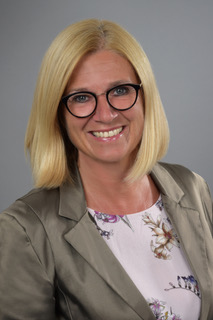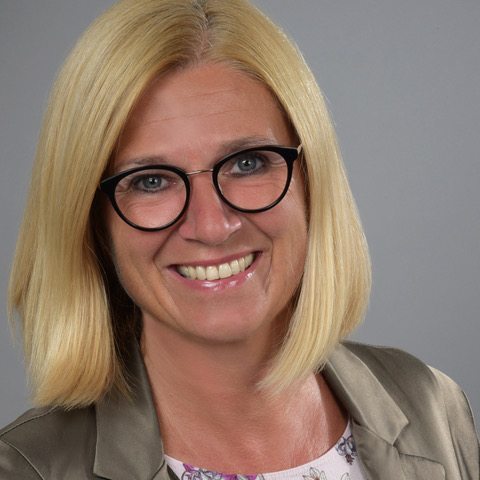My vision: A work environment in forensic-, health-, psychiatric- and social care that is characterized by Psychological Safety, so that staff experience empowerment and can live and develop their talents without fear of negative consequences. A culture in which work is informed by professional knowledge, trust, equal relationships, and multidisciplinary collaboration and with that enhance the care and treatment of people in need.
Learn more
Equality, Openness, Ethics, Expertise, Knowledge Sharing, Reflection, Feedback, Optimism and Solution Orientation are deeply rooted values that motivate and drive me in my work and studies.
These values support me in creating cultures in organisations and teams where Psychological Safety thrives. Where employees feel safe enough to develop, be creative, ask questions, share concerns, and contribute innovatively without fear that their contribution will be held against them or has negative personal consequences (Edmondson, 1999, 2019; Theunissen-Schuiten, 2022).
Psychological Safety becomes meaningful through the personal interpretation of all the elements of the environment and the people within it. This personal interpretation is informed by one’s own background, history, professional knowledge, and the experienced feelings of belonging, equality and value (Theunissen-Schuiten, 2025)
„Forensic vigilance is a central multi-disciplinary competency and defined by Clercx et al., in 2021 as: healthcare professionals anticipating on possible escalation of a situation before it happens by actively observing your surroundings and colleagues and knowing when an observation requires action. Forensic vigilance requires awareness of the patient(s), their mental disorder, criminal history, and awareness of the context of a forensic setting. It is being able to recognize even subtle signs of possible escalation, the capacity to communicate with colleagues about observations, doubt, uncertainty or gut feelings, and the willingness to act when necessary (Clercx et al., 2021, p. 14).
In close collaboration with Maartje Clercx, the forensic institution 'De Rooyse Wissel' in Venray the Netherlands, and the Forensic Network of leaders in forensic psychiatry (BFLK), I am currently developing a Forensic Vigilance training in the German language. It appears that Psychological Safety (PS) in multidisciplinary team collaboration is essential for establishing forensic vigilance among all professions in forensic psychiatry.
When something goes wrong, it is common in our society to focus on the weaknesses, failure and look for who’s to blame. I go a different way; I don't ask who 'messed it up’ instead l ask the question; 'What do we learn from this, and which processes should or can be optimised'. This means establishing a constructive culture through feedback.
My work, for example guiding staff in supervision, leadership coaching, organisational consulting, and teaching assignments, is characterised by inclusive leadership, positive diversity, inclusion, good relationships, and equality, to create new or different perspectives of established processes and structures with the purpose of innovation and optimising.
I always remain practical, so that everyone can always "take something with them".
The total institution (Goffman, 1961) is said to no longer exist, and yet the hierarchical bureaucratic organizational model in healthcare is still very widespread (Bracco Bruce, 2020; Feißt et al., 2022; Geppert & Pastuh, 2017; Scott, 2010; Theunissen- Schuiten, 2022). "We've always done it this way", or "I don't dare", or "It's not my responsibility" are the answers to the question of why something happens in a certain way. The problem is usually not the hierarchy and the associated roles and responsibilities, but the behaviour of people high in the hierarchy.
To be able to work together in an innovative multidisciplinary manner, “inclusive leadership, equality, good relationships and appreciation of the professional role and the people in the cooperation” are the basis for communicating with each other clearly, openly, curiously and without blame (Carvalho Chinelato et al., 2020; Edmondson, 2019; Edmondson & Harvey, 2018; Nembhard & Edmondson, 2006; O'Donovan & McAuliffe, 2020; Theunissen-Schuiten, 2022). A main part of my work is to question established communication and processes critically, to involve every profession and to find solutions and new ways collaboratively.
Since 2024 I have been working as a Visiting Research Associate at the University of Chester.
I am Dutch (Rotterdam 1969) and live, since 2002, with my husband and son in Duisburg, Germany.
After completing my bachelor's degree (Rotterdam, 1991) and master's degree (Leiden 1995), I have worked in forensic psychiatry and have held various senior management and clinical management positions, in both the Netherlands and Germany.
In 2010 I founded my own company and further specialized in the professional development and empowerment of teams, leaders and clients in complex organizations and cultures.
In 2022 I successfully defended my doctoral thesis (PhD) at the University of Chester (UK). This scientific study entitled: "An ethnographic investigation into multidisciplinary team collaboration – the role of psychological safety in a high-secure forensic in-patient hospital in Germany" contributes to knowledge about multidisciplinary teamwork (MDT) and psychological safety. The study has identified factors that contribute or create obstacles to the effective functioning of multidisciplinary collaboration.
Besides my own business I am a visiting research associate at the Faculty of Health, Medicine, and Social Care of the University of Chester.
I am also a member of the European Cost action FOSTREN. In this working group more then 200 innovative researchers from 33 countries work together to Foster and Strengthen Approaches to Reducing Coercion in European Mental Health Services.
In this sense, my work, alongside my experience, is inspired and informed by best practice and international research collaboration.

"The LVR Klinik Langenfeld is faced with the task of planning, building and opening a large new forensic hospital on a greenfield site. We spent a whole day with Lettie Theunissen, who has good experience with such projects, and got a good overview how to approach this large project at all levels of spatial, structural and personnel planning. A day that was worthwhile, was highly effective and on which we still build today."
Jutta Muysers
Medical Director forensic psychiatry LVR Langenfeld
"Today, a good management structure and culture are decisive for the quality and attractiveness of a nursing department in hospitals. In close collaboration with me and based in the organisational vision and strategy of the nursing department, Lettie Theunissen, significantly strengthened and further developed the managers in the nursing department in Klinikum Vest in their daily work as a management team and as individual leaders."
Christian Fehr
Director of Nursing at Knappschaft Kliniken GmbH former Director of Nursing at Klinikum Vest
"Change processes, driven by, for example, the Hospital Structure Act, are major challenges that affect all areas of a hospital. Ms. Theunissen supported our Management team in developing and strengthening our position as leaders and managers in order to cope with the pressure of change in a large organization. She provided changes in our perspectives which were helpful, as they offered us targeted self-reflection and decision-making assistance. She created a safe space in which we could discuss our work and innovate our processes together openly and constructively."
Managementteam Heads of departments of the Raphaels hospital, a hospital of the Alexianer and Clemenssisters in Münster